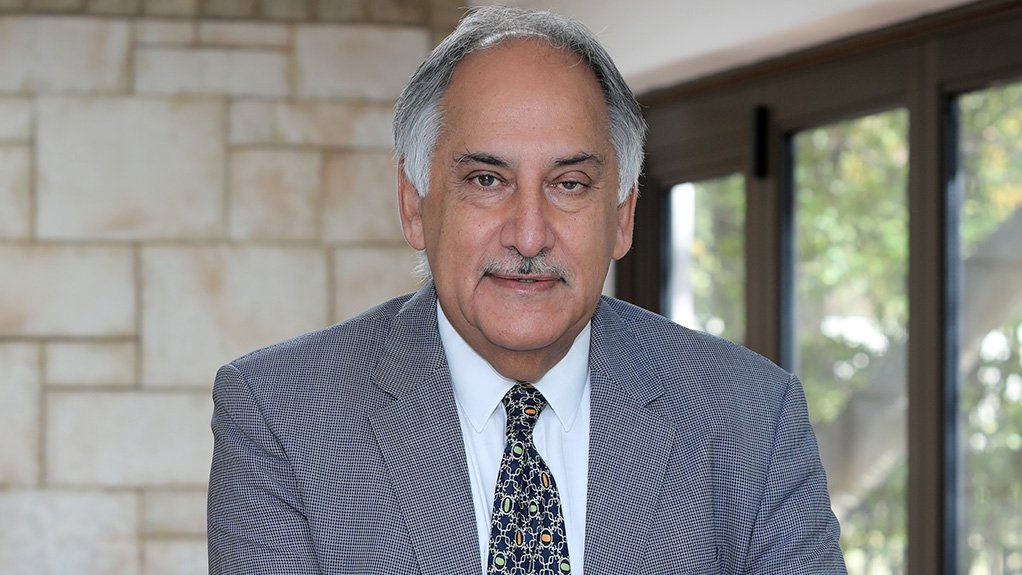Business organisations Business Unity South Africa (Busa) and Business for South Africa (B4SA) have called on President Cyril Ramaphosa to act in accordance with the commitment he made in late November 2023 to test the constitutionality of the National Health Insurance (NHI) Bill.
“Given its numerous substantive and procedural constitutional flaws, the business groups believe the President should refer the Bill back to Parliament for reconsideration and amendment prior to him signing it into law,” the entities assert in a statement.
“Following the adoption of the Bill by Parliament in November, Busa submitted a detailed formal petition to Ramaphosa to send the Bill back to the National Assembly on the grounds of unconstitutionality. We hope the President considers the long-term impact and risks of assenting to a Bill that so clearly flouts the Constitution,” says Busa CEO Cas Coovadia.
Busa and B4SA say they have consistently supported the policy direction towards universal health coverage, but note their reservations about the NHI Bill’s design and implementation.
There have been suggestions that Ramaphosa has only signed certain provisions of the Bill into law; however, Busa says it believes this will not provide the necessary clarity and certainty.
“This will hamper collaboration, impede initiatives which can put the country on a pathway to universal health coverage, as well as undermine critical investment in the healthcare sector and the economy more broadly,” the organisation avers.
“What the country needs is an NHI underpinned by the Constitution, and which is affordable and implementable. This Bill does not meet these criteria and is not ready to be signed into law,” Coovadia asserts.
According to the business organisations, the Bill in its current iteration will “materially delay access to universal health coverage, lead to disinvestment in the healthcare sector, further damage South Africa’s already fragile economy and create significant risks for the country in terms of the availability, quality, management and governance of healthcare”.
“We recognise that the country is in pre-election mode and that the adoption of the NHI Bill is a cornerstone of the government’s policy platform and its election campaign.
“However, the weaknesses and the material negative implications of the NHI Bill, in its current form, will have devastating consequences for the country and her people for generations to come. There is a significant obligation on the President to ensure the Bill passes Constitutional muster,” points out B4SA steering committee chairperson Martin Kingston.
ISSUES
A summary of the key procedural and substantive constitutional issues raised by Busa in its petition to Ramaphosa include that, procedurally, Parliament’s socioeconomic-impact assessment process was inadequate, that the National Economic Development and Labour Council process in respect of the Bill was not followed through, that public participation inputs were not properly considered and that multiple constructive inputs from business and other stakeholders were ignored.
Parliament’s Portfolio Committee on Health also ignored an opinion by Parliamentary Legal Services, which highlighted several areas of the Bill that are unconstitutional, Busa outlines.
The organisation notes that the process conducted by the National Council of Provinces Select Committee on Health and Social Services was “rushed, inadequate in terms of its mandate and failed to properly deal with reports submitted by the provinces”.
It emphasises that the committee failed to incorporate amendments, provincial public submissions and technical flaws noted by several provinces and even the national Department of Health.
Busa avers that Section 33 is unconstitutional in giving the Health Minister “unfettered power to determine the restricted role for medical schemes, especially as this power is unnecessary for achieving the policy objectives of the Bill”.
The organisation states that the single fund model (where government will buy and pay for all healthcare services for everyone) “introduces significant concentration risk and adversely impacts on people’s ability to seek care in the private sector”.
It adds that this is also likely to result in significant strain being placed on the public sector.
The amendments proposed by Busa seek to allow a role for medical schemes to be determined in a consultative process, in measured phases in a manner that is consistent with the policy objectives.
Busa mentions that the procedures for accessing healthcare and appealing treatment denied by the NHI, could potentially hinder or violate the right to access health services, making them unconstitutional.
The Bill provides for the adding of new taxes and altering tax policies, tasks that should be handled by the National Treasury in a Money Bill as per the Constitution. Additionally, the Bill breaches the separation of powers by giving the Minister of Health judicial discretion, Busa points out.
The organisation also believes the contracting provisions in Sections 11 and 26 of the Bill are unsustainable and inconsistent with the principles of value-based care and strategic buying, which it notes is the global trend for sustainable healthcare contracting that is patient-centred.
Busa highlights that the roll-out envisaged in Section 57 of the Bill needs to be linked to milestones that are workable and relevant to South Africans having reasonable access to quality healthcare services, rather than dates which are “arbitrary and unrealistic, and already outdated”.
Section 58 of the Bill introduces legislative changes that seem to take immediate effect, Busa says.
However, it warns that this conflicts with Sections 31 and 32 of the Bill, leading to the immediate removal of health functions from the provinces.
This affects about R196-billion in funding from Provincial Equitable Share allocations and Conditional Grants. Additionally, the alterations to the Medical Schemes Act contradict Section 33, Busa outlines.
It adds that these are conflicts with the Competition Act and the Protection of Personal Information Act.
EMAIL THIS ARTICLE SAVE THIS ARTICLE ARTICLE ENQUIRY
To subscribe email subscriptions@creamermedia.co.za or click here
To advertise email advertising@creamermedia.co.za or click here











